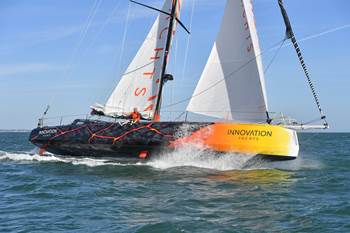Search Results
Showing 1 – 10 of 208 results
Infused, fiberglass/polyester composite boat hulls have been built since the mid-1900s, expanding over time to include additional resins and foam cores. Composites continue to be a mainstay for various types of boats and luxury and racing yachts, and now include newer innovations such as carbon fiber precision hydrofoils and recycled carbon fiber or bio-based resins.
Strategic partnership aims to reduce the environmental impact of luxury yacht construction by integrating Nova Carbon rCF into the boatbuilder’s manufacturing processes.
As 2023-2024 consumer demand slows, boat and marine vessel manufacturers continue to focus on decarbonization and new technologies using composites.
Four-person prototype is one of many in-development hulls, floating docks and pontoons comprising bamboo composites and EOL wind blades re-engineered into reliable, environmentally conscious water vessels.
This marks the first investment in Iron Path Capital’s advanced materials platform, accelerating growth of Gougeon’s epoxy resin systems while preserving the company’s culture, technical leadership and quality.
CW Top Shops honoree Sargo Oy shares its successes in upgrading operations from hand layup to infusion, employing low-waste manufacturing practices, research in large-format 3D printing for mold production and more.
Marine industry constituents are looking to take composite use one step further with the production of tough and recyclable recreational boats. Some are using new infusible thermoplastic resins.
Continuous glass fiber-reinforced thermoplastic panels offer the marine industry lightweighting and production efficiency compared to traditional construction materials.
In collaboration with ATL Composites, the Australian boat company grows into B2B manufacturing, providing boatbuilding, consumer and other industries with large-format composite plug making.
British composites company caters to aesthetic and high-performance needs of boatbuilders.
Research at Faserinstitut Bremen’s ECOMAT site, alongside industry partners, aims to enable sustainable, aerospace-focused composites — including thermoplastic welding and cryogenic material testing.










